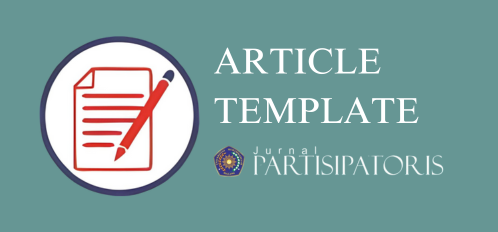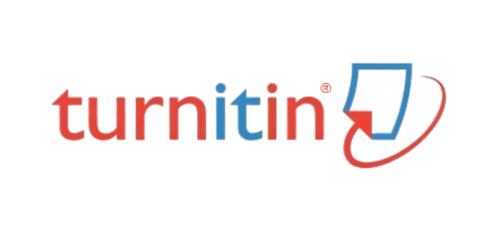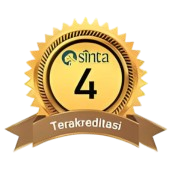Bandar Tembakau Madura” Patron-Client Relationship and Social Transformation in the Tobacco Trade Organization in Madura
Bandar Tembakau Madura” Patron-Client Relationship and Social Transformation in the Tobacco Trade Organization in Madura
Keywords:
social transformation, tobacco's trade, MaduraAbstract
This article studied about social transformation and its complexity experienced by various classifications of traders in the tobacco world in Madura. Tobacco for Madura's society even though it's only seasonal, and in the last few years the price was very irregular and unpredictable - sometimes it's good fallen, however tobacco being the important economic factor in the trades and agriculture of Madura's tobacco, this article observed more about the social networks among the offenders through library research. The finding was in the world of tobacco's trade-in Madura, the important role that connects the tobacco plantation of Madura's inhabitants with the factory side were the tauke, juragan (skipper), and bandol.Tauke represented the large factories who yet they swayed and led away by Chinese ethnic origin, while the skipper and bandol more taking role as 'broker' with various segmentation. In the trading practice carried out, there was a relational pattern that was built, both between tauke with juragan (skipper) or between juragan (skipper) with bandol (retailer). Both these relational patterns have the element which more or less the same although in different levels. The skipper was highly dependent on assets owned by tauke, where the tauke use the assets to give to bandol as assets also in buying the tobacco from the farmers directly as well as through other brokers. The relation includes with the various consequences which create a pattern called patron-client
Downloads
References
REFERENCES
Adib, M. 2009. Etnografi Madura. Surabaya: Pustaka Intelektual Surabaya.
Agusyanto. 2007. Jaringan Sosial dalam Organisasi. Jakarta: Rajawali Press.
Ahimsa-Putra, H.S. 2007. Patron Klien Di Sulawesi Selatan: Suatu Kajian Fungsional-Struktural. Yogyakarta: Kepel Press.
Ahimsa-Putra, H.S. Paradigma Ilmu Sosial-Budaya; Sebuah Pandangan. Makalah dalam kuliah umum” Paradigma Penelitian Ilmu-Ilmu Humaniora” diselenggarakan oleh Program Studi Linguistik, Sekolah Pascasarjana, Universitas Pendidikan Indonesia, di Bandung, 7 Desember 2009.
Fathorrahman, dan Nasikun, J. 2011. Sistem Perdagangan Tembakau di Sumenep Madura: mengungkap Ketidakberdayaan Petani terhadap Pedagangan Tembakau. Jogjakarta. Program Studi Ilmu Sosiologi Program Pascasarjana Universitas Gajah Mada.
Jackson, K.D. 1981. Urbanisasi dan Pertumbuhan Hubungan Patron-Klien; Perubahan Kualitas Komunikasi Interpersonal di Sekitar Bandung dan Desa-Desa di Jawa Barat. Jakarta: Fakultas Ilmu-Ilmu Sosial Universitas Indonesia Jakarta.
Jonge, H.de. 1989. Madura Dalam Empat Zaman: Pedagang, Perkembangan Ekonomi, dan Islam. Jakarta: Gramedia.
Kuntowijoyo. 2002. Perubahan Sosial Dalam Masyarakat Agraris Madura 1850-1940. Yogyakarta: Mata Bangsa.
Kutanegara, P.M dan Rohman. 2006. Masyarakat Batukandik: Dinamika dan Transformasi Komunitas Adat Terpencil di Bali. Yogyakarta: Kepel Press.
Narwoko, J. D dan Suyanto, B. 2006. Sosiologi: Teks Pengantar dan Terapan. Jakarta: Kencana.
Padmo, S dan Djatmiko, E.1991. Tembakau; Kajian Sosial-Ekonomi. Yogyakarta: Aditya Media.
Partanto, P.A. dan & Al Barry, M.D. 1994. Kamus Ilmiah Populer. Surabaya: Arkola. Popkin, S.L. 1989. Petani Rasional. Jakarta: Yayasan Padamu Negeri.
Radar Pamekasan. 21 Juni 2011. Perda Pelarangan Tembakau Jawa Bakal Dicabut.
Rifai, M.A. 2007. Manusia Madura. Yogyakarta: Pilar Media Scott, J.C. 1981. Moral Ekonomi Petani, Pergolakan dan Subsistensi di Asia Tenggara. Terj. Hasan Basri. Jakarta: LP3ES
Soekanto, S. 1979. Teori Perubahan Sosial. Jakarta: Gramedia Pustaka Tama.
Tjandraningsih, I dan Anarita, P. 2002. Pekerja Anak di Perkebunan Tembakau. Bandung: Yayasan AKATIGA.
Usman, S. 2004. Sosiologi; Sejarah, Teori dan Metodologi. Yogyakarta: CIReD.
Yuliati, Y dan Poernomo, M. 2003. Sosiologi Pedesaan. Yogyakarta: Lappera Pustaka Utama
Downloads
Published
How to Cite
Issue
Section
License

This work is licensed under a Creative Commons Attribution-ShareAlike 4.0 International License.
Authors who publish with Jurnal Partisipatoris agree to the following terms:
- For all articles published in the Jurnal partisipatoris, copyright is retained by the authors. Authors give permission to the publisher to announce the work with conditions. When the manuscript is accepted for publication, the authors agree to the automatic transfer of non-exclusive publishing rights to the publisher.
- Authors retain copyright and grant the journal right of first publication with the work simultaneously licensed under a Creative Commons Attribution-ShareAlike 4.0 International License that allows others to share the work with an acknowledgment of the work's authorship and initial publication in this journal.
- Authors are able to enter into separate, additional contractual arrangements for the non-exclusive distribution of the journal's published version of the work (e.g., post it to an institutional repository or publish it in a book), with an acknowledgment of its initial publication in this journal.
- Authors are permitted and encouraged to post their work online (e.g., in institutional repositories or on their website) prior to and during the submission process, as it can lead to productive exchanges, as well as earlier and greater citation of published work (See The Effect of Open Access).











